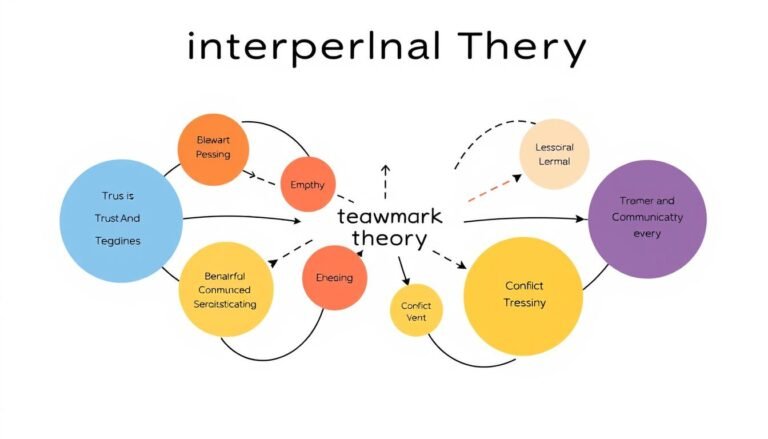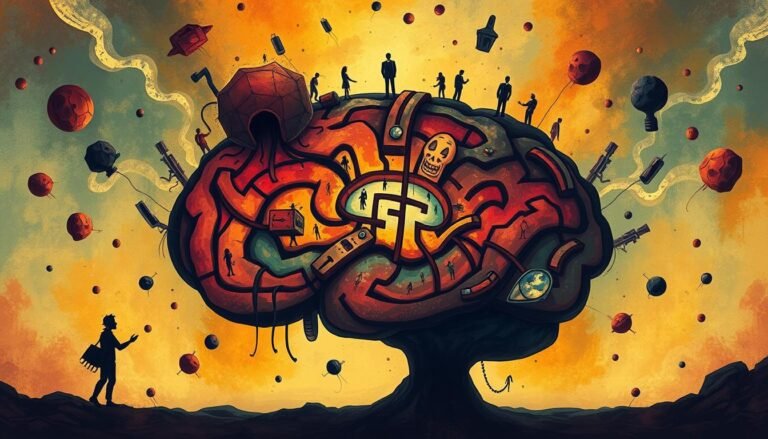Cultivating a Culture of Compassion and Understanding for Mental Health in Ireland
Jessie prized her close friendships but felt a major change in 2020. She found herself seeing friends in person for only 40 minutes a day. This was down by about 70% from previous years. Like many of her peers in Generation Z, Jessie felt alone. A CDC report in 2022 showed that 73% of young people often felt lonely. Additionally, 42% of high school students felt sad or hopeless. Surprisingly, this made young adults more likely to be lonely than people over 65.
The problem of loneliness isn’t just for the young. A report by the Born This Way Foundation found that less than half of students felt part of a caring community. It’s clear that we need to work on showing kindness and understanding towards mental health for all ages in Ireland. There are many efforts underway to support mental health with compassion. These efforts show us how important it is to focus on understanding and empathizing with those who are struggling.
Key Takeaways
- Teenagers in 2020 spent significantly less time with friends in person, impacting their social well-being.
- Young adults show high rates of loneliness, nearly twice those of individuals over 65.
- Generation Z reports high feelings of loneliness and sadness.
- A substantial number of high school students experience persistent sadness and hopelessness.
- Fostering a compassionate culture is vital for addressing mental health challenges in Ireland.
The Importance of Mental Health Awareness in Ireland
Mental health awareness is growing in Ireland. Knowing about public efforts and policies is key to a healthier country. Talking openly about mental well-being and ending stigma is a common goal.
Raising Public Consciousness
Initiatives for mental health in public places are very important. Aware is a leader in this area, offering many ways to help. They provide confidential support lines for those who need to talk, and support groups where professionals help others cope better.
Aware also has online resources and lessons. Their Life Skills Online Program helps people deal with stress and low moods. They also hold workshops and courses to help in a more direct way.
Government Initiatives and Policies
The Irish government supports mental health education through its policies. They work with groups like Aware to make help more available. This includes more in-person and online support groups for everyone’s use.
Partnerships help make mental health education part of the country’s education. They want to grow a culture of support and understanding. Their goal is lasting changes that affect how mental health is seen and treated.
Ongoing education and awareness work support early help. This improves mental health for many people. It also breaks down myths and stigmas about mental illness. This leads to a society that is more open and caring.
Corporate Roles in Mental Health Advocacy
Businesses are key in promoting mental health at work. They do this by building support within the company. An example is KCS, which makes sure its employees are part of a caring work setting.
KCS’s Mental Health Awareness Scheme
KCS started its Mental Health Awareness Scheme in 2019. It has already helped 77 people from all over the country. This program focuses on understanding mental health better, showing support, and encouraging people to talk about it. This makes it a model program for others in the corporate world.
Chris Bendelow-Smith pointed out how important mental health champions are. They help create a work environment that is open and caring. The BIMA’s Tech Inclusion & Diversity Report 2019 showed that people in the tech sector are at a higher risk for depression. This makes such programs very important.
Employee Assistance Programs
At KCS, there are also Employee Assistance Programs (EAPs). These offer important help. They include talking to counselors, attending workshops, and learning in seminars. This gives employees the needed support for their mental well-being.
Moreover, KCS includes mental health champions as part of its team. This shows they are leading in supporting mental health at work. They not only help employees but also push for a more understanding culture.
By offering support and teaching people about mental health, KCS makes its workplace safer and caring. These efforts are essential for creating work environments that are free of judgment and welcoming towards mental health.
Community-Based Mental Health Initiatives
In Ireland, community mental health projects are key to keeping people well. Since 1966, Mental Health Ireland has led the way. They offer many community services for anyone who needs them. These efforts help make sure that everyone can get the mental help they need.
Mental Health Ireland’s Efforts
Mental Health Ireland is doing a lot to help people feel supported where they live. They focus on teaching the public, helping with recovery, and being advocates. They work with local groups and volunteers to make sure everyone’s needs are met. By teaching understanding and support, they make it easier for people to reach out.
Local Support Groups and Activities
Support groups and local activities are crucial in mental health care. They offer places for sharing and support. Through events sponsored by Mental Health Ireland, communities get closer and are more resilient. This all helps build stronger and happier places to live.
Being trained to spot signs of depression or suicide helps save lives. Local centers and shared spaces are also important. These places encourage talking about mental health and reduce shame around it.
May is important as Mental Health Awareness Month. It’s a time for many to learn and join in helping. Together, with groups, faith leaders, and advocates, we can do a lot. We can help make sure everyone gets the support they need.
Training and Education: Building a Knowledgeable Society
Building a society where we address mental health well starts with training and education. Everyone should learn First Aid for mental health. Now, more than ever, with a 25% rise in global anxiety and depression, we need to focus on mental health education.
Mental Health First Aid Training
First Aid for mental health teaches people to spot and help in mental health crises. It’s very needed now. K-12 educators and health professionals are getting more stressed and burnt out. For example, more than 300 teachers worldwide have trained in Compassion Cultivation since 2012.
Though it costs $75 to apply and $6900 for the course, these teachers know its value. A 2015 study confirmed that Mental Health First Aid helps make schools safer and improves student performance.
Educational Programs in Schools and Universities
Teaching mental health in schools is vital. Our minds are shaped a lot during adolescence. This is a key time for how we think and react.
We also face challenges like bullying then, which can last a long time. That’s why programs to build a strong sense of self are crucial. They’ve been proven to help since 2005.
UNESCO says education changes lives. Mental health education should be all through our school life. It helps keep schools and communities healthy and stops stigma. Many studies agree, saying this also makes teachers do better and helps kids grow.
The pandemic has made kids’ and teens’ mental health worse. It’s in the news a lot. The data from European studies shows we must teach mental health in schools to help these young people now.
Personal Stories: Breaking the Stigma
Mental health stigma is a big issue today. Sharing our mental health struggles helps reduce this stigma. Many find hope and understanding in these stories, especially if they’re facing similar challenges every day.
“It took me over 10 years to seek help for my depression. The stigma kept me isolated. I felt I couldn’t talk to my loved ones about it.”
Many people delay seeking help because of mental health stigma. This can be serious, as it might worsen their condition. It’s shocking that suicide is the second top cause of death for those 10 to 34.
Overcoming mental health stigma shows bigger issues. It points out that therapy costs are going up. Additionally, people often wait a long time to see a mental health professional.
Sadly, stigma also makes it hard to keep a job. It causes bullying in schools and limits healthcare coverage. Some have to go to great lengths to get the care they need.
Telling their stories can help change how people see mental health. It makes us all more empathetic and supportive. With these real stories, we can make destigmatization a reality.
“Opening up about my struggles connected me with a supportive community. It has helped me heal.”
The support, or lack of it, can greatly impact someone’s recovery from mental health issues. Being part of a community that understands and having access to help is crucial. This helps in staying well and getting better.
In the end, sharing stories is key to fighting mental health stigma. These stories are powerful in reducing the shame around mental illness. They offer hope to those who are still silent about their struggles.
Collaborative Approaches to Mental Health Care
The collaborative mental health care model is changing how we deal with mental health issues. It is especially useful in Ireland where 1 in 4 people face mental health challenges each year. This model builds strong partnerships within the healthcare field and involves the community actively.
Partnerships with Healthcare Providers
Partnerships between different types of health providers are key for good mental health care. A survey in Ireland found that 85% of mental health practice owners think strong collaboration is vital. It lets professionals join forces to give better, more personal care.
Such partnerships also improve how professionals work together. Better teamwork means patients get better care. It also means less stress and better work-life balance for the health professionals.
Co-production with Community Members
Letting the community help create mental health services works well. 75% of mental health practice owners say that knowing how to communicate well is crucial. Communication makes community involvement key. It ensures mental health care is both effective and meets local needs and values.
This approach also makes people feel like they can really make a difference. When everyone gets to help, there’s a big jump in finding new and better ways to solve problems. So, more voices coming together means smarter, more effective solutions.
Healthcare and community partnerships are vital for good mental health services. They provide a holistic approach to care. This approach meets the many needs of the community, making it stronger and more resilient.
Support Systems for Lived Experience Individuals
Being there for those with mental health challenges is crucial. Support can make a big difference in someone’s recovery and happiness. These systems provide various resources and help.
Peer Support and Recovery Programs
Peer recovery programs are very important. They connect people who have gone through similar things. NAMI offers many peer support options, like the NAMI Peer-to-Peer program. This course helps adults with mental health issues learn from each other. It meets for eight sessions. NAMI’s Support Groups also give a chance to share stories and get support.
The NAMI HelpLine and the 988 Suicide & Crisis Lifeline are also key. They offer quick help and are available 24/7. These services show there’s a strong focus on supporting others in their mental health journey.
Family and Caregiver Support
It’s not just the individual who needs support. Families and caregivers play a huge part too. NAMI runs programs like NAMI Basics for youth caregivers. And the NAMI Family-to-Family program helps family members learn how to support their loved ones.
There’s also support for military family members through NAMI Homefront. This program addresses their specific challenges. It’s important to support these caregivers, as they are essential to their loved ones’ mental health journey.
Peer support and caregiver resources are essential. They help people find strength and support in their recovery. This helps create a caring and understanding community in mental health care.
Cultivating a Culture of Compassion and Understanding for Mental Health
Creating a compassionate mental health environment is key for a happy society. Large companies like P&G have shown the way with meaningful programs. For example, more than 3,000 P&G workers globally have joined the “Improve YOUR Life” initiative. It’s a mindfulness program highlighting the company’s focus on worldwide mental well-being.
The Grooming team at P&G has also made big moves. They’ve taught over 160 people about mental health support through the Mental Health FIRST AID® program. In Boston, up to 30 First Aiders have been trained. These actions encourage a caring environment at work, vital for healthy mental health conversations.
Nearly 1 in 5 U.S. adults live with a mental illness, while over half do not get the necessary treatment.
P&G holds support sessions that over 800 employees attend. These sessions help those facing challenges feel a part of the team. They want everyone, including those with medical conditions, to feel welcome and valued.
In Ireland, Quirky Bit is focusing on creating balance. They offer flexible working hours and a lot of time off. They also have an Employee Assistance Program with counseling options. These efforts lead to an environment that supports mental health discussions.
Quirky Bit always talks to employees to know how to help better. They use surveys and workshops to stay connected and address needs. They also educate everyone about mental health to break the stigma and welcome more understanding actions.
With these efforts, larger organizations can make real change. They can help people talk openly about mental health. This way, they build a community that truly cares and understands.
Conclusion
In Ireland, big steps are being taken to improve mental health. This is thanks to efforts that focus on understanding and caring for others. Many groups are working together, from the government to companies to local communities.
This joint effort shows that by using mental health first aid and education, we can change the way society thinks. Slowly, we’re ending the old, harmful ideas about mental health.
One study looked at how helping just 49 workers made a big difference in their mental health in three months. They found that being kind to themselves improved how they felt. These results show that focusing on being caring and kind can really help. This is very important because poor mental health costs the world a lot of money each year.
Slowly but surely, we’re becoming a society that truly cares. Understanding and limiting our wrong first reactions can make everyone feel more included and understood. It’s good for everyone, not just the people directly affected. It makes teams at work stronger and employees happier. As these changes continue, there’s a lot of hope for a future where everyone’s mental well-being is supported.
FAQ
What are some key Irish mental health initiatives?
In Ireland, key mental health initiatives focus on education. The government has policies on mental health education. Corporations like KCS run the Mental Health Awareness Scheme. Also, there are efforts by groups like Mental Health Ireland to increase awareness.
How does Ireland aim to raise mental health awareness?
To increase awareness, Ireland uses public campaigns and school programs. They also have government policies to talk about mental health more. These actions try to make everyone know more about mental health.
What role do corporations play in mental health advocacy in Ireland?
Companies in Ireland like KCS have set up the Mental Health Awareness Scheme. This encourages talking about mental health at work. They also are starting to use Employee Assistance Programs to help with mental health.
How does Mental Health Ireland contribute to community-based mental health initiatives?
Mental Health Ireland focuses on community. They help teach people, support recovery, and work with others in the area. Their network supports mental wellness in the community.
Why is Mental Health First Aid training important?
Mental Health First Aid helps people see when someone is struggling. It trains people to support those in mental health crises early. This makes our society better at helping each other.
What impact do personal stories have on mental health stigma?
Sharing personal stories makes mental health issues less scary. It shows that anyone can have struggles. This sharing builds care and understanding, key to changing cultural views about mental health.
What kinds of collaborations are involved in Ireland’s mental health care approach?
Ireland works together across many groups for mental health care. Healthcare workers, local people, and non-profits join forces. This teamwork provides better support and care for everyone’s mental health needs.
What support systems exist for individuals with lived mental health experiences?
There are support systems like peer programs and recovery support for mental health survivors. Plus, there are resources for families and those who give care. Recognizing everyone’s role is important for recovery.
How is Ireland fostering a culture of compassion and understanding for mental health?
Ireland is building a kinder culture by talking openly about mental health. Everyone from the government to communities is working on this. The goal is to support those in need and fight against mental health stigma.
Source Links
- Cultivating Kindness and Nurturing Youth Mental Health
- Self-Compassion in Irish Social Work Students: Relationships between Resilience, Engagement and Motivation
- Cultivating organizational compassion in healthcare | Journal of Management & Organization | Cambridge Core
- Overview of Aware’s Mental Health Mission in Ireland – Piton
- The importance of mental health awareness in facilities management – Apleona Ireland
- Mental Health Awareness: A Guide to Understanding and Support
- Cultivating a work culture with compassion
- What’s HR’s Role in Workplace Mental Health Awareness
- Company Culture Can Overcome Mental Health Stigma | WorldatWork
- Cultivating Compassion: Embracing Mental Health Awareness Month
- For Community and Faith Leaders
- Mental Health Matters: Raising Awareness and Support in the Community
- CCT™ Teacher Training 2023 | Compassion Institute
- Nurturing positive mental health and wellbeing in educational settings – the PRICES model
- Fortifying the Foundations: A Comprehensive Approach to Enhancing Mental Health Support in Educational Policies Amidst Crises
- Stigma & Shame: Breaking the Silence on Mental Illness – Evolve
- Invincible Voices – Young Adult Mental Health Stories From Across the Nation
- Understanding and Addressing Mental Health Stigma Across Cultures for Improving Psychiatric Care: A Narrative Review
- Kindness is Mental Health | Cultivating Compassion at Work
- Collaborative Leadership Skills for Mental Health Practice Owners
- Rethinking Health and Care Systems: Tackling the erosion of compassion in acute mental health services
- Mental Health Awareness Month
- Compassion Resilience and Mental Wellness
- How P&G is Cultivating a Culture of Mental Wellbeing
- Five steps toward a more caring, compassionate mental health culture
- Cultivating a Culture of Employee Well-being and Mental Health
- Cultivating Compassion and Reducing Stress and Mental Ill-Health in Employees—A Randomized Controlled Study
- Cultivating Compassion: A Guide to Thriving in a Blame-Free Culture
- Cultivating a Culture of Care and Compassion (CCCC)








